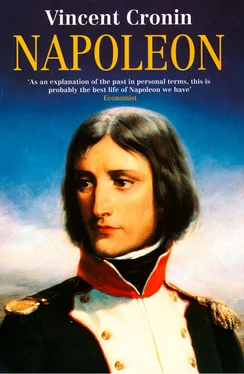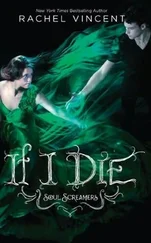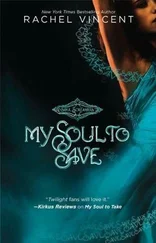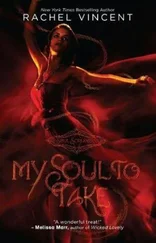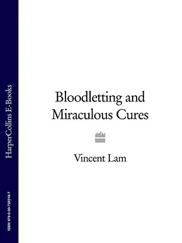Vincent Cronin - Napoleon
Здесь есть возможность читать онлайн «Vincent Cronin - Napoleon» — ознакомительный отрывок электронной книги совершенно бесплатно, а после прочтения отрывка купить полную версию. В некоторых случаях можно слушать аудио, скачать через торрент в формате fb2 и присутствует краткое содержание. Жанр: unrecognised, на английском языке. Описание произведения, (предисловие) а так же отзывы посетителей доступны на портале библиотеки ЛибКат.
- Название:Napoleon
- Автор:
- Жанр:
- Год:неизвестен
- ISBN:нет данных
- Рейтинг книги:3 / 5. Голосов: 1
-
Избранное:Добавить в избранное
- Отзывы:
-
Ваша оценка:
- 60
- 1
- 2
- 3
- 4
- 5
Napoleon: краткое содержание, описание и аннотация
Предлагаем к чтению аннотацию, описание, краткое содержание или предисловие (зависит от того, что написал сам автор книги «Napoleon»). Если вы не нашли необходимую информацию о книге — напишите в комментариях, мы постараемся отыскать её.
Napoleon — читать онлайн ознакомительный отрывок
Ниже представлен текст книги, разбитый по страницам. Система сохранения места последней прочитанной страницы, позволяет с удобством читать онлайн бесплатно книгу «Napoleon», без необходимости каждый раз заново искать на чём Вы остановились. Поставьте закладку, и сможете в любой момент перейти на страницу, на которой закончили чтение.
Интервал:
Закладка:
The Corsicans held urgent meetings. There were 130,000 of them at this time: a fiery people, bright-eyed, shrill-voiced, forceful in gesture. The typical Corsican wore a short jacket, breeches and long gaiters made of coarse chocolate-coloured corduroy; on his head was cocked a pointed black velvet cap, across his shoulders lay a loaded musket, shot being carried in a leather pouch. He lived in a stone windowless house, lighted at night by a flaring branch of pine, in a corner of which stood a heap of chestnuts which he ground to make his bread. Olives and grapes he picked from his own trees and vines, game – mainly partridge and boar – he shot with his own gun. So he did not need to work in the fields, and considered such work demeaning. His wants were few, and since coinage was hardly known, he felt small temptation to amass wealth. On the other hand he possessed, to an unusual degree, a sense of independence. This bred tremendous assurance, and its counterpart, self-importance.
With such men as these to lead, Paoli decided to resist the French. Carlo felt the same. They called mass meetings; at one of them Carlo made an impassioned and very honest speech: ‘If freedom could be had for the wishing, everyone would be free, but an unfaltering attachment to freedom, rising above all difficulties and based on facts not appearances, is rarely found in men, and that is why those who do possess that attachment are considered virtually superhuman’ – as Paoli was by the islanders. A majority at this meeting voted for resistance, and the men dispersed shouting ‘Freedom or Death.’
In August 1768 French warships landed 10,000 troops at Bastia, on the other side of the island from Ajaccio. Carlo hurried into the mountains to join Paoli. Letizia went also, to look after him in case he were wounded. The Corsican guerrillas, Paoli excepted, had no uniform and they had no cannon; they charged not to fife and drum but to the shrill haunting note of Triton shells. They knew nothing of drill but they did know every corner of the maquis, the thick undergrowth of myrtle, arbutus, broom and other sweet-smelling shrubs which cover the Corsican hills. Paoli led them to victory and took 500 prisoners. The French had to retreat and their commander, Chauvelin, resigned in shame.
Next spring the French returned, 22,000 of them this time, led by the able Comte de Vaux. Again Carlo took to the maquis. Letizia went with him. She was pregnant and she carried her baby son in her arms. She camped in a granite cavern on Corsica’s highest peak, Monte Rotondo, while Carlo led his men against the French. Sometimes she slipped out to see: ‘Bullets whistled past my ears, but I trusted in the protection of the Virgin Mary, to whom I had consecrated my unborn child.’
The Corsicans fought stubbornly. In this and the previous year’s fighting they killed or wounded no less than 4,200 French. But they were too heavily outnumbered and on 9 May Paoli was decisively defeated at Ponte Nuovo. Carlo was still keeping up resistance on Monte Rotondo when, two weeks later, a French officer arrived carrying a white flag. He told Carlo that Corte was in French hands, and the war over. Paoli had decided to go into exile in England. If Carlo and his comrades returned to their homes they would be unmolested.
Carlo and Letizia went to Corte. Here the Comte de Vaux, who had come to feel a healthy respect for Corsicans, assured them that the French came not as oppressors but as friends. Carlo was now faced with a cruel choice. Should he and Letizia go into exile with Paoli? After all, he was one of Paoli’s trusted lieutenants. Perhaps the English would help them win their freedom, though appeals to England had brought no support in the present war. Or should they accept the new situation? Unlike Paoli, Carlo was a family man, and he saw how difficult it would be to make a living abroad as a lawyer. Paoli was an idealist, ‘superhuman’ in his devotion to freedom, but Carlo was more practical. He had twice risked his life to keep Corsica free. That was enough. He would remain in Ajaccio. But he parted from Paoli on good terms, going to Bastia to wave him goodbye as he sailed in an English warship with 340 other Corsicans who preferred exile to French rule.
Carlo and Letizia, heavy-hearted, resumed their life in Ajaccio. The new French garrison hauled down the Corsican flag – argent, a Moor’s head proper, bandaged over the eyes – and ran up their own blue flag with white lilies. French was the new official language, and while Carlo started to learn it, Letizia waited for the child who, as the result of Carlo’s decision, would be born not a Corsican in London but a Frenchman in Ajaccio.
July passed into August, a stiflingly hot month in the little seaport sheltered from breezes. August 15 is the feast of the Assumption, and Letizia, with her devotion to the Virgin Mary, insisted on going to the cathedral for High Mass. When Mass had begun she felt the first signs of labour. Helped by her practical sister-in-law, Geltruda Paravicini, she regained her house a minute’s walk away. She did not have time to go upstairs to bed; instead she lay down on the sofa on the ground floor, while Geltruda called the doctor. On the sofa, shortly before noon, with almost no pain, Letizia gave birth to a son. He was born with a caul, that is, part of the membrane covered his head, which in Corsica as in many places is considered lucky.
Later that day a priest from the cathedral came to baptize the boy. Doubtless he expected that Maria would be included among his names, since Letizia had consecrated him to the Virgin Mary and he had been born on her greatest feast; it was quite usual to add Maria to the main name: Carlo, for instance, was Carlo Maria. But the parents were not inclined to any feminine touch. The child whom Letizia had gallantly carried beside her soldiering husband was to have one name only: Napoleone, after one of Letizia’s uncles who had fought the French and just recently died. Originally, Napoleone was the name of an Egyptian martyr who suffered in Alexandria under Diocletian. Letizia pronounced it with a short ‘o’, but on most Corsican lips it sounded like Nabullione.
Excitement and exertion on the mountains may have caused the baby to have been born before term; at any rate he was not robust. Letizia breast-fed him herself and engaged a sturdy peasant wet-nurse as well, a sailor’s wife named Camilla Ilari. So the child had no shortage of milk. He was cosseted by a mother who had already lost two children, and when he cried was rocked to sleep in his wooden cradle. All this care, combined with Ajaccio’s healthy climate and sea air, produced the desired effect and the baby which had been born puny began to grow into a sturdy child.
Whereas Giuseppe, the elder boy, was quiet and composed, Napoleone was full of energy and curiosity, so that visitors turned his name into Rabulione – ‘he who meddles in everything’. He had a generous nature and would share his toys and sweets with other children without asking a return. But he was always ready for a scrap. He liked to take on Giuseppe, who was his elder by nineteen months; they would roll on the ground in the garden, biting, slapping, twisting each other’s necks, and often it was the younger boy who won. Evidently with the rowdy Napoleone in mind, Letizia cleared one room of furniture, and here on wet days the boys could do what they liked, even draw on the walls.
Napoleone grew up in an atmosphere of security and affection. His young parents were devoted to each other, and they both loved children. Later Carlo, as a Corsican, would have the right of life and death over his sons, but now it was for the mother to administer discipline. When Carlo tried to gloss over the boys’ faults, ‘Let them be,’ said Letizia. ‘That is not your business, but mine.’ She was a great person for cleanliness, and made her children take daily baths. Napoleone did not mind this, but what he did mind was going to the long-drawn-out High Mass on Sunday. If he tried to skip it, he got a sound slap from Letizia.
Читать дальшеИнтервал:
Закладка:
Похожие книги на «Napoleon»
Представляем Вашему вниманию похожие книги на «Napoleon» списком для выбора. Мы отобрали схожую по названию и смыслу литературу в надежде предоставить читателям больше вариантов отыскать новые, интересные, ещё непрочитанные произведения.
Обсуждение, отзывы о книге «Napoleon» и просто собственные мнения читателей. Оставьте ваши комментарии, напишите, что Вы думаете о произведении, его смысле или главных героях. Укажите что конкретно понравилось, а что нет, и почему Вы так считаете.
